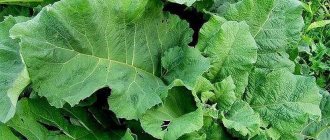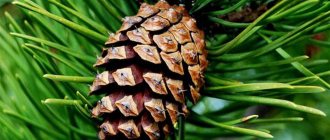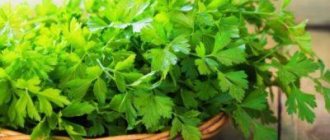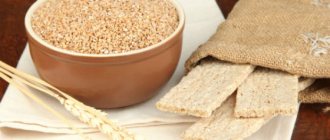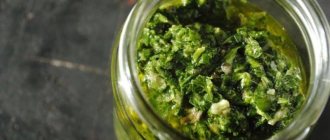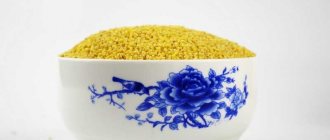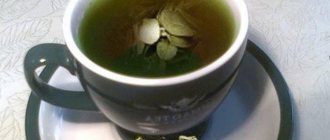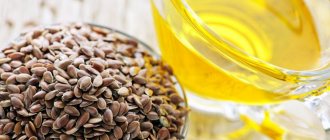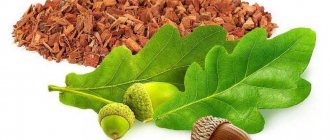What is cystitis and how does it manifest?
Cystic infectious disease of the bladder, manifested by inflammation of its mucous membrane and underlying layers.
Urologists often use the word cystitis to refer to the main symptoms of a urinary infection, which is accompanied by inflammation and pain. This is a polyetiological disease with different courses and different outcomes.
Depending on how long a person has been sick, there are:
- acute cystitis – illness lasts from several days to a week;
- Chronic cystitis is a long-term disease: more than six months with periodic relapses.
By origin, cystitis is divided into:
- Primary cystitis is usually of bacterial etiology and most often the causative agent is Escherichia coli. What does it mean that bacteria from the intestines invade the bladder mucosa?
- Secondary cystitis - occurs against the background of other diseases, for example, cystitis with a malignant neoplasm of the kidneys or the bladder itself. Gynecological pathologies accompanied by infection also cause inflammatory processes in the bladder cavity. Sexually transmitted diseases, in which urethritis is the first symptom, can move higher into the bladder.
Herbs for chronic cystitis
Properly selected medicinal herbs provide significant benefits to a woman’s body when performing healing measures at home aimed at treating chronic cystitis.
Juniper
Due to its pronounced antimicrobial and diuretic properties, juniper is successfully used to alleviate the condition of chronic cystitis.
Article for you:
How to treat hemorrhoids with herbs at home
You will need 1 tbsp. l. dried juniper berries, which should first be crushed. Pour them into an enamel bowl with a glass of water brought to a boil. Place in a water bath and simmer for a quarter of an hour.
The cooled decoction, after expressing through two layers of gauze, 20 ml, is drunk after each meal. Caution for performing therapy with juniper infusion is the period of gestation, hypertension, chronic gastric and renal pathologies.
cornflower
Valued in alternative medicine when organizing the treatment of female chronic inflammation of the urinary tract, cornflower, which has diuretic, analgesic, and antimicrobial characteristics.
When making a healing product, brew 250 ml of boiled water and 1 tsp. dried ground cornflower herb. After cooling, filter the infusion through a strainer.
The resulting volume is divided into three equal servings, which should be drunk 25-30 minutes before the meal. Keep in mind that cornflower is contraindicated during pregnancy.
Licorice
Use dried ground licorice root - 2 tbsp. spoons, heaping up. Transfer the raw materials into a pan with a liter of heated water. At low heat, allow the liquid to boil, and then pour the mixture into a thermos.
After ten hours of infusion, the healing liquid with anti-inflammatory and antimicrobial properties is filtered and cooled. It is recommended to take 50 ml every three hours. The course duration is 14 days.
Licorice is prohibited for consumption if you have diabetes, hypertension, or the presence of heart, kidney, liver, or gynecological pathologies. Not recommended for nursing and pregnant women.
Birch buds
Chronic cystitis can be successfully treated by using dry birch buds. You will need to place 2 tbsp in a heat-resistant bowl. l. raw materials and brew it with boiling water - 400 ml.
After two hours of infusion, strain the healing drink through a sieve. 20-25 minutes before meals, drink 40 ml 3-4 times throughout the day. The minimum duration of therapy is three months.
Despite the pronounced benefits, products based on birch buds are prohibited for pregnant women, as well as for exacerbation of gallbladder pathologies and renal failure.
Horsetail
Add 2 tbsp. l. crushed dried horsetail into a saucepan with a liter of boiling water. Reduce the heat to a minimum and simmer the product for a quarter of an hour.
Leave for half an hour and then squeeze through double gauze. Every eight hours it is recommended to drink a glass of the prepared healing remedy for two weeks.
We must not forget that products based on horsetail are not allowed for oral use in case of complicated kidney diseases, as well as in lactating and pregnant women.
Cowberry
Having anti-inflammatory, antiseptic, diuretic, and immunostimulating properties, lingonberries help quite effectively in the treatment of chronic cystitis. But women with hypotension and increased stomach acidity will have to refuse this treatment.
Dried lingonberry leaves - 10 grams are steamed in an earthenware bowl with a glass of boiling water. After cooling, the infusion strained through a strainer is drunk 20-25 minutes before meals, one tablespoon at a time.
Article for you:
The most effective herbs to help you quit smoking
You can make a decoction by boiling 2 tbsp at low temperature. l. crushed dried lingonberry leaves in a liter of water. After a subsequent forty-minute infusion, the liquid is expressed through gauze. Drink half a glass three times a day.
Causes of cystitis
There are underlying or predisposing conditions and diseases, in the presence of which cystitis develops faster and more often.
These include:
- frequent hypothermia;
- disruption of the mucous membrane of the bladder cavity by a foreign body, for example, a kidney stone or a stone in the bladder itself;
- stagnation of urine in the bladder due to impaired urine expulsion function, due to weakness of the bladder muscles or impaired innervation of the peripheral nervous system;
- the presence of kidney stones;
- eating large amounts of fatty and salty foods;
- alcohol consumption;
- change of sexual partner;
- violation of the rules of hygiene of the intimate area (washing the external genitalia from back to front);
- violation of sexual hygiene rules (lack of a hygienic shower before sexual intercourse, vaginal sex immediately after anal sex);
- sedentary, sedentary lifestyle;
- irregular urination due to violation of the drinking regime (drinking a small amount of liquid);
- deficiency of vitamins and minerals, poor quality nutrition and lifestyle.
Symptoms of cystitis
The course of acute and chronic cystitis manifests itself differently and has different symptoms.
Note!
Acute cystitis begins against the background of complete well-being and proceeds according to the laws of an infectious disease. That is, with acute cystitis there may be general symptoms, such as: fever, chills, general weakness, malaise.
Women themselves often diagnose cystitis based on a number of local symptoms that they recognize from thousands:
- Frequent urge to urinate - when a person is healthy, the number of urinations does not exceed five times a day. With cystitis, the patient can urinate from five to ten times a day, while the portions of urine are scanty, and sometimes the urge does not lead to any result.
- Pain when urinating - pain is caused by additional irritation of the urethral mucosa by urine.
- When urinating, the patient feels that the bladder has not emptied completely.
- Depending on the degree of infection and the initial condition of the person, pain at the end of urination is felt differently. In some cases, this is a slight burning sensation, more discomfort than pain, in others, a sharp dagger pain in the lower abdomen, which radiates to the rectum.
- Background pain is painful, unpleasant sensations in the lower abdomen outside the act of urination. This symptom is optional and may be absent.
- In rare cases, the patient may see drops of blood on a napkin or toilet paper at the end of urination.
The diagnosis of cystitis is made on the basis of a typical clinical picture, and is also confirmed if treatment with antibiotics brings a visible improvement in the person’s condition.
Diagnosis of cystitis
To confirm the diagnosis of cystitis, the following laboratory tests must be done:
- A general blood test - a change in the erythrocyte sedimentation rate and the number of inflammatory cells will indicate the infectious genesis of the disease.
- General urinalysis - in the urine the laboratory technician can see desquamated mucosal epithelial cells, leukocytes and lymphocytes, as well as single red blood cells. These tests are mandatory and also serve as screening.
- If it is necessary to clarify the causative agents of cystitis, the bacteriological laboratory can inoculate urine on nutrient media. In a week, a colony of the pathogens that caused the clinical picture of cystitis in a given person will grow in the thermostat. But in the routine practice of a therapist, such studies are not carried out, because treatment of cystitis takes no more than a week.
- If there is a suspicion that inflammation is a secondary phenomenon, or the first symptom of a malignant neoplasm of the bladder mucosa, it is advisable to take a biopsy. That is, perform an endoscopy and take a small piece of the mucosa for histological examination.
- Sonographic examination - this type of examination allows you to see general changes in the organ. But the uzologist cannot determine the cause of the changes.
Treatment of cystitis with medications
Treatment of chronic cystitis involves finding and eliminating the original cause. If the disease is the result of a chronic infection in the kidneys, then the kidneys are treated.
If the inflammatory process in the bladder occurs as a result of a violation of the outflow of urine due to narrowing of the urethra, then the original disease is diagnosed and treated.
Treatment of acute cystitis general recommendations:
- Bed rest.
- Drink plenty of fluids, the best herbal infusions and natural juices.
- During treatment, it is recommended to adhere to a diet without an abundance of fatty and salty foods.
- Complete exclusion of alcohol, since treatment will include antibiotic therapy and medication.
- Local, apply to the perineal area and lower abdomen in a warm heating pad.
- During treatment, create favorable conditions and avoid drafts.
Neurogenic
The main reason for the development of neurogenic cystitis is nervous shock caused by frequent stress, negative psychological pressure, and conflict situations.
Symptoms are represented by general signs of the development of the inflammatory process. Without timely treatment, bladder dystrophy may develop, leading to renal failure.
Treatment requires comprehensive treatment using medication, as well as psychotherapeutic and physiotherapeutic methods.
The effectiveness of folk recipes is manifested when the disease is not complicated. Use, on the advice of a doctor, products based on raw materials with sedative and anti-inflammatory properties:
- St. John's wort
Crushed dried St. John's wort herb - 1 tbsp. l. steam with a glass of boiling water. After ten minutes of exposure, the infusion is filtered. It is recommended to take 100 ml after breakfast and dinner.
- centaury
Dried yarrow herb is ground. Insist 1 tbsp. l. raw materials for two hours in a glass of boiled water. A 50 ml healing drink filtered through double gauze is drunk every six hours.
Article for you:
The most effective folk remedies for lice (pediculosis) and nits at home
Antibiotic therapy for cystitis
It is advisable to prescribe antibiotics for treatment from a qualified doctor. But usually women, in order to cope with the disease, act independently: they resort to the help of the Internet, the advice of friends, or consultation with a salesperson at a pharmacy.
The drugs given below are basic in the treatment of cystitis, but in each specific case, the doctor can assess the situation based on his experience and the individual characteristics of the sick person.
Note!
If possible, be sure to visit a urologist to prescribe high-quality, and most importantly, effective treatment. Otherwise, it is possible that the disease will become chronic, with frequent relapses and complications.
Fosfomycin
Fosfomycin is an antibacterial agent that is used systematically. This is the main active ingredient, but in the pharmacy you can find other names of the drug that will have the same properties. For example, Monural.
The spectrum of action of fosfomycin is quite wide, but most often it is used specifically for the treatment of bladder infections. This drug is also used to prevent cystitis if a diagnostic procedure or surgical intervention in the genitourinary area is to be performed.
Contraindications: children under 12 years of age, and patients who have kidney disease with reduced function. During pregnancy and breastfeeding, the use of fosfomycin and its analogues is prohibited.
Another feature of some commercial preparations is that additional components contain sucrose. This is important for patients who have diabetes or fructose intolerance.
Directions for use and dosage: since the drug is in individual sachets in powder form, you should drink it after dissolving it in a glass of water. It is recommended to take the drug before bed, after completely emptying the bladder.
Norfloxacin
Norfloxacin is an antimicrobial agent, antibiotics from the quinolone group. It kills Escherichia collie well, the same E. coli that most often causes cystitis in women.
Contraindications: hypersensitivity to quinolones, or allergic reactions in the past. Of the features of the drug, cases of tendonitis should be taken into account.
Tendinitis is a tendon rupture, but only older patients should be afraid.
Do not combine norfloxacin with drugs of the same group of quinolones, this may lead to the development of side effects.
Method of administration and dosage: the medicine is taken on an empty stomach with water; for the best effect it is recommended to take it 2 times a day, but a single use is acceptable.
If treatment at home with antimicrobial agents does not produce results, you should immediately consult a doctor to prescribe other medications.
Other drugs that can be prescribed for treatment are strong broad-spectrum antibiotics. Depending on the severity of the patient’s condition, these drugs are used in the form of droppers and intramuscular injections.
Interstitial cystitis
This type of disease is not caused by infection and is difficult to diagnose, since there are no obvious signs of damage on the surface of the mucous membranes of the urinary tract.
Due to the lack of glycosaminoglycans, intoxication of the bladder occurs, causing inflammation of the tissue located under the mucous membrane. It occurs with characteristic symptoms.
Particular suffering is caused by cutting pain that spreads to the entire lower abdomen during urination.
Without timely treatment, there is a risk of serious complications. Therapy is aimed at eliminating inflammation, relieving pain, and restoring affected tissues. Some medicinal plants are used as auxiliary techniques.
- pharmaceutical camomile
An infusion of this raw material relieves pain and spasms and accelerates the treatment of inflammation. You will need 10 chamomile flower baskets, which are kept in a glass of boiling water for 15 minutes. After filtering, drink 100 ml 10 minutes before breakfast and dinner.
- Bearberry
In an enamel saucepan, bring a glass of water to a boil. Add a tablespoon of dried crushed bearberry. Cook over low heat for 5 minutes. It is recommended to drink 100 ml of cooled filtered broth after breakfast and lunch.
- Horsetail
Article for you:
How to treat an ingrown toenail at home
You will need 4 tsp. crushed dry horsetail herb. The raw materials are kept in 400 ml of boiling water for an hour. After filtering, 50 ml of healing liquid is drunk after meals (within an hour's interval) four times a day.
Treatment of cystitis symptoms
Antipyretic drugs - if the temperature rises above 38 degrees or a person does not tolerate lower levels of hyperthermia, then regular Paracetamol can be used to relieve this symptom.
Note!
But remember that the temperature rises, resulting in activation of the immune system. An uncontrolled decrease in temperature will delay the healing process for a longer period.
Antimicrobial agents of plant origin - some urologists believe that these are tablets to calm the patient, because they are used only in combination with stronger drugs and antibiotics. Antimicrobial agents themselves are not effective.
- Canephron;
- Cyston;
- Urolesan;
- Phytolysin;
- Furadonin.
Vaginal suppositories - the occurrence and treatment of cystitis is closely related to the woman’s genital area. Cystitis can occur as a result of gynecological diseases, or it can provoke them. Therefore, vaginal suppositories can be prescribed as part of the treatment.
- to combat candida fungi - Pimafucin.
- antiseptic suppositories - Hexicon, Chlorhexidine.
- antimicrobial suppositories - betadine suppositories, methyluracil suppositories.
Treatment of cystitis in women at home with folk remedies
Modern medicine does not stand still and is constantly developing, however, despite this, folk remedies enjoy their well-deserved popularity and can help in the treatment of cystitis.
Cranberry and lingonberry fruit drinks
This is useful!
Rich in vitamins and microelements, these natural remedies are the first in effectiveness for treating cystitis in women. In addition, the berries are allowed to be taken even during pregnancy.
To prepare we need:
- Take 6 tablespoons of berries.
- Pour one liter of boiling water over the fruits.
- Leave covered for two hours.
You need to drink half a glass of cranberry or lingonberry juice, three times a day.
It is also advisable to brew lingonberry or cranberry leaves like regular tea and drink it to enhance the healing effect.
Herbal decoction
To prepare it we will need:
- Take 1 teaspoon each: cornflower flowers, licorice root and bearberry.
- Boil water and pour a glass of water into the herbal mixture.
- Infuse for 20 minutes, covered, and then strain the infusion.
Drink the resulting healing remedy a tablespoon half an hour before meals, three times a day.
St. John's wort infusion with chamomile
This infusion has antibacterial, diuretic, anti-inflammatory and hemostatic properties.
It is prepared like this:
- Take 3 teaspoons of chamomile flowers and 8 teaspoons of St. John's wort herb.
- Grind the herbs, mix and pour two glasses of boiling water.
- Leave covered for 30 minutes and then strain.
Drink a tablespoon before meals, three times a day.
Birch bud decoction
We prepare this remedy as follows:
- Take 1 tablespoon of birch buds.
- Pour one liter of boiling water and place in a water bath, cook for 25 minutes.
- Then remove from the bath, wrap in a towel and leave for one hour.
- Strain and, if desired, add a little honey to the warm broth.
Takes 100 milliliters of the product three times a day.
Dill infusion
To treat cystitis in folk medicine, such an unpretentious and widespread and well-known plant is often used - dill.
To prepare the infusion:
- You need to take dill seeds and grind them in a coffee grinder or mortar.
- 20 g of the resulting plant material is poured into one glass of water.
- In order for the infusion to absorb all the healing properties of the plant, it must be placed in a thermos and allowed to brew.
After 3 hours, the medicine is ready; dill infusion should be taken one quarter of a glass twice a day.
Treatment of cystitis with millet
Millet is an indispensable food product for many; a delicious and beloved porridge is prepared from it. However, not everyone knows that in addition to excellent taste, millet has good anti-inflammatory properties.
This grain crop has a high protein content, which is beneficial for the body:
- toxins are eliminated;
- the amount of harmful fats is reduced;
- inflammatory processes are reduced;
- The breakdown of antibiotics in the body accelerates.
Folk remedy for cystitis from millet
- We wash 0.5 cups of regular millet.
- Pour one glass of cold water over the grain.
- Stir the millet with water vigorously and knead it with your hands.
- The water should take on a whitish tint.
The finished drug should be drunk during the day, before meals. The course of treatment is one week.
Another recipe for millet treatment
- Let's take 2/3 tbsp. washed millet and add 0.6-0.8 ml of water to it.
- Leave it for one night, and in the morning mix everything and strain.
Drink the resulting product in small portions throughout the day. Course - 7 days.
Millet decoction against cystitis
- Pour one tablespoon of grain into one glass of boiling water.
- Bring to a boil over low heat, then strain the broth.
- The resulting liquid is used for treatment.
But get ready that you need to use fresh millet decoction, one spoonful every hour, and this is on the first day of illness.
On the second day, increase the dose to 3 tablespoons of decoction every hour. The course of treatment is 7 days, starting from day 4, drink half a glass once an hour.
Chamomile for the treatment of cystitis
Chamomile is a powerful natural remedy against infection and inflammation. Volumes of reference books and manuals on treatment with traditional medicines have been written about the beneficial properties of this plant for the body.
We offer an effective recipe for treating cystitis with chamomile.
Chamomile baths:
- Let's prepare a chamomile decoction: pour a dry tablespoon of chopped chamomile herb into a liter of boiling water and leave for a couple of hours.
- Pour the concentrated composition into a large bowl of warm, clean water.
- Baths should be taken before bedtime, and only if there is no increase in temperature above 36 degrees.
Hygiene procedures with chamomile decoction are useful. An aqueous decoction of chamomile can also be used to cleanse the external genitalia.
Parsley seed infusion
In the summer, after the plant produces spikelets and blooms, tassels with seeds will appear, and we will use them to treat cystitis.
Preparation of the infusion:
- Take one teaspoon of parsley seeds and add cold water.
- Place the solution in a dark, cool place for 12 days, then strain and take for treatment.
Take the infusion after meals, no more than a glass per day.
Corn silk and bearberry
- Take 1 teaspoon each of bearberry and corn silk.
- Grind and pour the collection with one glass of boiling water.
- Boil for 15 minutes over low heat.
Strain and take the resulting decoction twice a day.
Unique and simple recipes
Decoctions of herbs and other plants are popular. This is due to the fact that they are easier to prepare and there is no need to waste time on long preparation and consumption. All recipes are simple, and the ingredients can be found in every pharmacy or herbalist market.
Flax seed
Those who want to eliminate problems not only in the bladder, but also in the stomach, are offered a decoction of flaxseed. It cannot be said that it is brewed, rather it is insisted. You will need the above plant and half a liter of water. Keep everything on low heat until it boils. When closed, the liquid sits for 10-15 minutes. After which it is filtered and honey is added to it to taste.
Do not drink in one gulp, but gradually over an hour. Take once a day. The course of treatment is 7-10 days depending on the form of the disease.
Herbal mixture
This recipe involves mixing ready-made forms of pharmaceutical tinctures, or preparing it yourself, which is also not difficult. Required:
- lemongrass;
- eleutherococcus and aralia;
- Leuzea and ginseng;
- radiola pink.
Mix all tinctures in equal quantities. Dosage: 10-20 drops (depending on the form and degree of the disease) 3 times a day for a week. Helps improve the immune system and also has a healing effect on the female organs.
Rowan
For the decoction, they do not use the fruits, but the bark, which is steamed for a quarter of an hour over low heat (make sure that there is no boiling during this period). Ingredients of the decoction: 1 liter of water +100 g of crushed bark. Drink warm before meals 15-20 minutes. When the infection spreads to the kidneys, the stomach makes you feel much better.
Such medications will help relieve the inflammatory process after the third dose, but you must take the entire course to avoid relapse. Experts recommend using it to prevent disease. This should be done during periods of cold weather and changing seasons.
Steam baths and heating
Folk remedies for cystitis in women in the form of heating and herbal baths have proven themselves well.
Warming up with potatoes
For this heating method we need regular potatoes.
You need to prepare the remedy as follows:
- Boil large potato tubers with their skins.
- Peel and mash the potatoes while hot.
- Place the resulting puree on a napkin.
- Place the resulting warm bag of mashed potatoes on the lower abdomen.
We repeat the warming sessions for 5-7 days; it is best to do the procedures before bedtime.
Warming up with a brick
The procedure technology is as follows:
- Take an ordinary building brick, heat it and place it at the bottom of the bucket.
- Pour warm water into a bucket, cover the edges of the bucket with a warm soft cloth and cover with a blanket.
- Sit on top of the bucket and cover yourself with another blanket.
- You need to warm up until the heat is released, and after the procedure lie down in a warm bed.
It is advisable to carry out these warm-ups at night, until the disturbing symptoms of cystitis completely disappear.
Herbal bath
- Take 3 tablespoons of chamomile and calendula flowers.
- Pour a liter of boiling water over the plant material and leave covered for 40 minutes.
- Then pour the resulting infusion into the bath.
Take a medicinal herbal bath for 20 minutes.
Steam bath recipe
- Take 2 tbsp. l. such medicinal herbs: calendula, bearberry, horsetail, chamomile, lingonberry leaves.
- Mix the plant materials and add 0.5 liters of water to the herbs, boil and then simmer over low heat for 15 minutes.
- We put the pan with the hot broth on the floor, wrap ourselves in a warm blanket and stand over the pan, opening the lid slightly so that the steam reaches the lower abdomen.
We take a steam bath while the steam is flowing, then we dry ourselves with a towel and go to bed.
Bacterial
When inflammation of the bladder develops as a result of the growth of microorganisms from the group of opportunistic microflora, bacterial cystitis is usually diagnosed.
This is the most common form of this pathology. Often, along with drug treatment, the doctor recommends alternative medicine based on raw materials that have antibacterial properties.
- Sagebrush
Dried ground wormwood - 10 g is boiled for 20 minutes in 200 ml of water at low heat. Cooled, strained decoction, 1.5 tbsp. l. drink 30-35 minutes before breakfast, lunch, dinner.
- Yarrow
Brew 1 tbsp with a glass of boiled water. l. dried crushed yarrow herb. Leave for 30 minutes. Then squeeze the infusion through a double gauze napkin. Drink 50 ml every six hours.
- Aspen, birch, poplar
Combine three varieties of dried buds (aspen, birch, poplar) in equal proportions. In a glass vessel, combine the raw materials with vodka, maintaining the proportions of 1:10. The tightly sealed vessel is kept in a dark cabinet for 14 days. The tincture, filtered through a sieve, is taken 30 drops, dissolving them in 200 ml of water, once a day.
- Multicomponent herbal infusion
Article for you:
How to treat adenoids in children: without surgery, with folk remedies at home
Several types of dried, ground raw materials are combined. To the rhizomes of elecampane, calendula inflorescences, eucalyptus foliage, St. John's wort and echinacea, taken 1 tbsp. l., add elderberry flowers, lingonberry foliage, as well as meadowsweet and fireweed herbs - 2 tbsp each. l. You will also need rose hips - 3 tbsp. l.
After thorough kneading, steam 1 tbsp. l. collect 500 ml of boiled water. Cooled, filtered infusion, 100 ml, is taken before breakfast, lunch, and dinner. The minimum duration of treatment is one and a half months.
Treatment of chronic cystitis with folk remedies
If for some reason a woman was unable to cure acute cystitis, and it became chronic, then in this case, all of the above remedies also help. But they will need to be used much longer - from 1.5 to 2 months, at intervals of 2 weeks.
Also, for chronic cystitis, a proven folk remedy such as flax seeds is recommended.
Flax seed decoction
- Take 3 tablespoons of flax seeds, pour 0.5 liters of cold water.
- Place on low heat and cook for 5 minutes.
- Then leave for 10 minutes and strain.
- Add 1 tablespoon of honey.
Drink the prepared decoction one hour in small sips.
Strengthening the immune system
Therapy for the treatment of chronic cystitis involves removing special attention to strengthening the immune system. For this, doctors recommend taking pharmacy tinctures of the following herbs:
- Rhodiola rosea;
- lemongrass;
- Aralia;
- ginseng;
- Eleutherococcus;
- Leuzea.
You need to drink healing tinctures in 2-week courses, taking doses of 15-20 drops twice a day. If the disease subsides for a short time, then treatment should not be stopped.
Rowan bark decoction
This remedy is a good prevention of exacerbation of cystitis.
You need to prepare it like this:
- Take 1 kilogram of rowan bark and add one liter of water.
- Place on the fire and bring to a boil.
- Then reduce the heat and simmer for one hour.
- Strain through cheesecloth and drink the resulting decoction like tea until the disturbing symptoms disappear.
This miracle remedy has a positive effect on the owl, already the next day after the start of treatment.
Effective herbal decoctions for cystitis
Decoctions differ from infusions by a longer preparation process.
Birch bud decoction
- Take 5 tablespoons of birch buds and pour them into glasses of boiled, cold water.
- Let stand for 2 hours.
- Then pour the contents into the pan and add 2 more glasses of boiled water.
- Stirring constantly, cook the mixture over low heat for about 15 minutes.
- Afterwards, leave the prepared broth for about 2 hours.
- Then filter through cheesecloth and place in the refrigerator.
The decoction can be stored for no more than 3 days in the refrigerator. It should be taken 100 ml daily three times a day
Parsley decoction.
- Take 100 g of fresh parsley and chop it thoroughly.
- At the same time, heat 1 liter of water in a saucepan, pour in the greens and cook for 30 minutes over low heat.
- Then leave in a sealed container in a dark place for 2 hours.
- Strain the mixture and cool in the refrigerator.
We take half a glass every day before meals. The decoction should be taken for 21 days, then take a break for 7 days and repeat the course.
Horsetail decoction
- Take 1 tablespoon of horsetail and 1 tablespoon of chamomile, mix the herbs.
- Pour a glass of boiled water, leave for 1 hour,
- Then pour the mixture into a saucepan, diluting with 3 glasses of water.
- Cook for 15 minutes, then cool and drink 2 tablespoons daily before meals 3 times a day.
Cystitis and sex life
If you ask your doctor whether it is possible to have sex during an acute period of cystitis, the answer will be unequivocal: “No.”
Most likely, at a time when the acute phase of inflammation is in progress, a woman is unlikely to be interested in carnal pleasures. But if, nevertheless, the temptation is great, you should adhere to the following rules:
- Take an intimate hygienic bath before and after sexual intercourse;
- Use lubricants and special products to moisturize the vaginal opening so as not to injure the delicate skin.
- Urinate immediately after intercourse.

